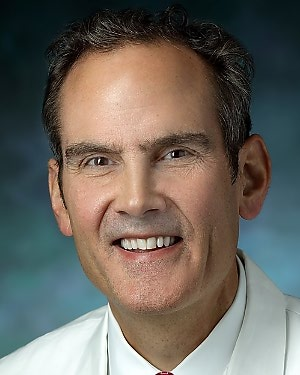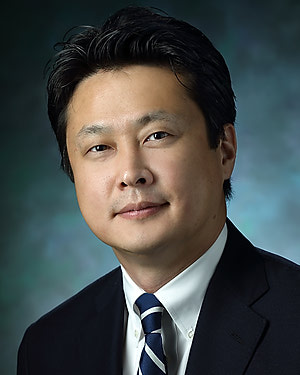Research Lab Results
-
Reid Thompson Laboratory
Reid Thompson’s research interests include evaluation of ventricular function in patients with muscular dystrophy and Barth syndrome, and in patients who have completed chemotherapy. He also studies novel methods of teaching and diagnosing heart disease through cardiac auscultation.
-
Katherine Wilson Lab
Research in the Wilson Lab focuses on three components of nuclear lamina structure: lamins, LEM-domain proteins (emerin), and BAF. These three proteins all bind each other directly, and are collectively required to organize and regulate chromatin, efficiently segregate chromosomes and rebuild nuclear structure after mitosis. Mutations in one or more of these proteins cause a variety of diseases including Emery-Dreifuss muscular dystrophy (EDMD), cardiomyopathy, lipodystrophy and diabetes, and accelerated aging. We are examining emerin's role in mechanotransduction, how emerin and lamin A are regulated, and whether misregulation contributes to disease.
-
Gail Geller Lab
The Gail Geller Lab primarily conducts empirical quantitative and qualitative research on the ethical and social implications of genetic testing in the adult, pediatric and family contexts. We have focused on clinical-patient communication under conditions of uncertainty; professionalism and humanism in medical education; cross-cultural variation in concepts of health and disease; and clinician suffering and moral distress. We explore these topics in a range of health care contexts, including genomics, complementary and alternative medicine (CAM) and palliative care. Our researchers have a longstanding interest in medical socialization, provider-patient communication under conditions of uncertainty and cultural differences in attitudes toward health and disease. We also explore the intersection of CAM and bioethics, as well as the role of palliative care in chronic diseases, such as muscular dystrophy and sickle cell disease.
-
Gabsang Lee Lab
Human induced pluripotent stem cells (hiPSCs) provide unprecedented opportunities for cell replacement approaches, disease modeling and drug discovery in a patient-specific manner. The Gabsang Lee Lab focuses on the neural crest lineage and skeletal muscle tissue, in terms of their fate-determination processes as well as relevant genetic disorders. Previously, we studied a human genetic disorder (familial dysautonomia, or FD) with hiPSCs and found that FD-specific neural crest cells have low levels of genes needed to make autonomous neurons--the ones needed for the ""fight-or-flight"" response. In an effort to discover novel drugs, we performed high-throughput screening with a compound library using FD patient-derived neural crest cells. We recently established a direct conversion methodology, turning patient fibroblasts into ""induced neural crest (iNC)"" that also exhibit disease-related phenotypes, just as the FD-hiPSC-derived neural crest. We're extending our research to the neural crest's neighboring cells, somite. Using multiple genetic reporter systems, we identified sufficient cues for directing hiPSCs into somite stage, followed by skeletal muscle lineages. This novel approach can straightforwardly apply to muscular dystrophies, resulting in expandable myoblasts in a patient-specific manner.

